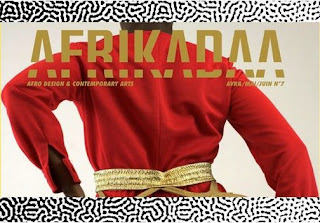directrice de la foire de l’Edition Africaine de Dakar
See English translation below
- Mercredi 30 novembre 2022 – 18h
- Auditorium de l’EESAB-site de Rennes
- Conférence ouverte à toustes, sans réservation, dans la limite des places disponibles
https://www.eesab.fr/blog/pascale-obolo/
Pascale Obolo est cinéaste, rédactrice en chef de la revue Afrikadaa et commissaire indépendante. Née à Yaoundé, Cameroun, elle étudie au conservatoire Libre du cinéma Français en section réalisation, puis obtient un master de cinéma à l’université de Paris VIII, section cinéma expérimental. Ses premiers films documentent le début du mouvement Hip Hop et la scène parisienne graffiti.
Cinéaste féministe, elle a également porté son regard sur la place de la femme dans les milieux artistiques. Ses films ont été montrés et primés dans de nombreux festivals. Sa démarche artistique de cinéaste est souvent issue des arts plastiques et numériques, rompant délibérément avec les codes narratifs traditionnels; les codes visuels ou clichés que l’on a de l’Afrique et de sa culture.
Activiste son travail interroge les mémoires, l’identité, l’exil, l’invisibilité. Dans la construction de ses objets filmique, elle expérimente différentes formes où le réel s’entremêle à la fiction.
Passionnée par les arts visuels, Pascale Obolo produit et réalise « des objets filmiques » car elle refuse d’être cataloguée dans un genre cinématographique. Dans mes récits, j’interroge les mémoires et les répercussions qu’elles ont dans nos sociétés contemporaines : “Réfléchir sur le devenir de héritage des mémoires pour mieux appréhender notre société et l’avenir.”
Certains de ses travaux ont été exposés au Musée du Montparnasse, au Musée du Quai Branly, au Musée du Centre Pompidou, Manège de Dakar, au Mac Val, la fondation Kadist, la fondation David Roberts…
Son film Calypso Rose the lioness of the jungle a remporté le prix Yennega d’argent en mars 2013 au FESPACO (Festival panafricain du cinéma et de la télévision de Ouagadougou) dans la section documentaire.
Ses derniers travaux questionnent les archives à travers la construction de récits historiques dans une perspective postcoloniale, autour des représentations visuelles et culturelles de l’histoire politique et économique, à travers la photographie, la vidéo, et la performance. Ses oeuvres s’appuient sur un processus de recherche interdisciplinaire, aussi diverses que la danse, la musique, littérature, le film, et les sciences humaines.
Pascale Obolo est à l’origine de la structure d’Afrikadaa Lab : une revue d’art contemporain, un laboratoire intellectuel et artistique qui a pour vocation de créer une dynamique de création à Paris et dans les territoires africains et diasporiques. Afrikadaa est aussi un outil-média pour une meilleure visibilité des oeuvres, offrant la possibilité d’un processus curatorial et d’un espace de visibilité, ouvert sur les expériences qui renforcent la place des artistes issues de la diaspora dans l’agenda artistique mondial.
Elle dirige aussi l’African Art Book Fair (AABF) / une foire d’édition indépendante mettant l’accent sur les pratiques éditoriales et soutenant les pratiques de publications qualitatives et uniques.
***
Lecture by Pascale Obolo, cineaste, director of the Edition Africaine de Dakar fair
- Wednesday 30 November, 2022 – 18h
- The auditorium of the EESAB-Rennes site
- Conference is open to all, no reservation necessary, within the limit of available space
Pascale Obolo is a filmmaker, independent curator and editor-in-chief of Afrikadaa magazine. Born in Yaoundé, Cameroon, she studied directing at the conservatoire Libre du cinéma Français, after which she obtained a master's in cinema at the Université de Paris VIII specializing in experimental cinema. Her early films document the beginning of the Hip Hop movement and the Parisian graffiti scene.
As a feminist cineaste, she has a particular focus on women’s place with artistic space. Her films have been shown and received awards at numerous festivals. Her artistic approach as a filmmaker often draws from the plastic and digital arts, deliberately breaking with traditional narrative codes; the visual codes or clichés that are often attributed to Africa and its culture.
As activist, her work problematizes issues around memory, identity, exile, invisibility. In the construction of her filmic objects, she experiments with different forms where reality intermixes with fiction.
Passionate about the visual arts, Pascale Obolo produces and directs “film objects”, refusing to be categorized within a cinematographic genre. “In my stories, I interrogate practices of memory and the repercussions it has in our contemporary societies: hence, reflecting on the evolution of the heritage of memory in order to better understand our society and the future.”
Some of her works have been exhibited at the Musée du Montparnasse, the Musée du Quai Branly, the Musée du Center Pompidou, Manège de Dakar, the Mac Val, the Kadist foundation, the David Roberts foundation…
In 2013, her film Calypso Rose, the Lioness of the Jungle won the silver Yennenga prize for documentary at FESPACO (The Panafrican Film and Television Festival of Ouagadougou).
Her latest works problematize the archive through the construction of historical narratives from a postcolonial perspective, around visual and cultural representations of political and economic history, through photography, video, and performance. Her works are informed by an interdisciplinary research process, encompassing dance, music, literature, film, and the humanities.
Pascale Obolo is the creator of the Afrikadaa Lab: a contemporary art magazine, an intellectual and artistic laboratory which aims to create a creative dynamic in Paris and African and diasporic spaces. Afrikadaa is also a media tool to enhance the visibility of works of art. Hence, offering the possibility of a curatorial process and a visible space, allowing access to experiences that reinforce the place of artists from the diaspora within the global artistic agenda.
She also operates the African Art Book Fair (AABF) / an independent publishing fair which puts a spotlight on editorial practices while supporting qualitative and distinctive publishing practices.










